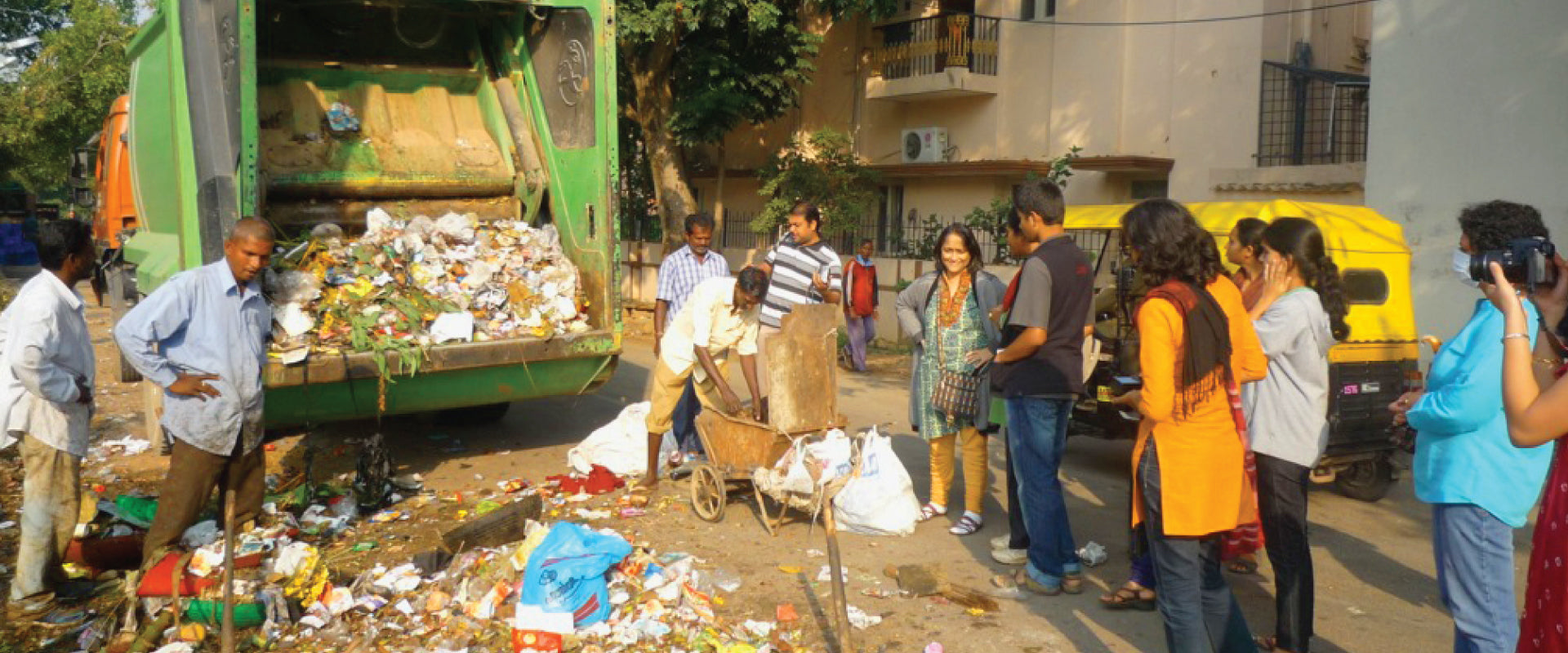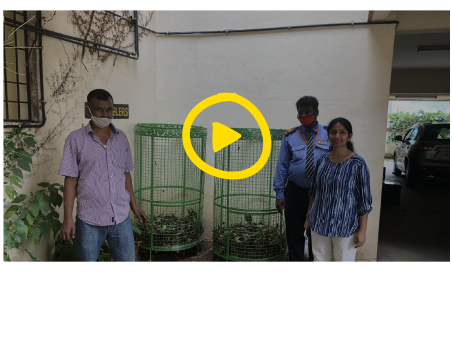Why our choices as consumers matter |the voice of an urban millenial

An urban waste story by Anindo Ghosh

When I was about 7 years old, on a visit to my maternal hometown of Jejur, a village in Haripal district of West Bengal, I remember gleefully chancing upon an empty packet of the same Aata (wheat flour) that we used back in Mumbai. This delighted me - because I was a big fan of parathas - and comforted me - that even in this village we can get the same things we get in our city. At the time, I could not fathom the whole picture (which is still an ongoing personal journey) where this beautiful crop is harvested from our villages, industrially processed with chemicals, packed in plastic with remnants of the advertised nutrients, and sent all across the country, if not the world. This wheat flour is also sold back to our producers in the form of superior wheat flour.
Further cementing my mind away from the reality in the next few years was all the praise I studied about globalisation, economies of scale, and the benefits of large, multinational corporations who stand for vast supply chains with standardised quality and ‘innovation’. To their credit, they have brought considerable advantages to our table. They have been crucial in India’s evolution. Our modern cities are testaments to our combined proactivity, innovation, and hard work - where consumerism manages to be the grease in our wheels of growth. So consumerism, in my humble opinion, is not inherently a bad thing, but as our cities become epicentres of ideas, exchanges, commerce, and advancement, perhaps our aspirations can align better with our needs - where satisfying our present desires need not sacrifice our bliss tomorrow.
So consumerism, in my humble opinion, is not inherently a bad thing, but as our cities become epicentres of ideas, exchanges, commerce, and advancement, perhaps our aspirations can align better with our needs - where satisfying our present desires need not sacrifice our bliss tomorrow.
Cities in India have been ‘exploding’ with growth. On one hand, this has elevated the standard of living in terms of fulfilling modern aspirations. On the flip side, these ever-growing aspirations put a heavy strain on our resources and urban infrastructure. Our cities might stand as shining examples of a new India, but what is also growing with these cities is the amount of waste that is generated.
Waste in numbers:
- A combined report of the Ministry of Environment & Forest Affairs along with the Ministry of Housing & Urban Affairs in 2018 estimated that our country generates 5,29,71,720 metric tonnes of mixed, solid waste every year!
- Our major cities - Delhi, Mumbai, Chennai, Hyderabad, Bengaluru, and Kolkata - contribute to over 20% of this total waste we generate.
- As per Central Pollution Control Board’s calculations, Mumbai generates around 11,000 tonnes of mixed, solid waste every day! Delhi comes a close second at 8,700 tonnes per day! Bengaluru too generates around 6000 tonnes per day!
Out of this daily waste generated, only a minor fraction of it is composted and recycled. Around 80-90% of the waste goes to landfill!
Sustainability and climate change are pressing issues - no arguments there. However, as a young individual, I also feel the need to gracefully accept that our consumption patterns today will first help us, and that could be enough to motivate today’s generations rather than convincing us to care for our children or our grandchildren.
My own consumption contemplation
As I set out living on my own a few years back, I experienced pride, joy, and wonder whenever I entered a large retail store. I felt I was living and contributing to the modern human experience. Fruits and vegetables - available all year round in neatly packed plastic boxes or packets; leading cereals, flours, and ready-to-eat products packed and processed with ‘goodness’, and ofcourse cleaning & washing items displayed in ‘convenient’ bottles and containers. I felt great walking back home with a branded plastic bag filled with sachets, bottles, packets, and boxes.
After a point, I started realising just how much I am consuming - and more importantly how I am consuming - based on the size of the trash bags I was sending out every other day. I wondered why I continue to choose big brands that are shipping out their products to different corners of the world. I contemplated why I am okay sipping on winter fruit juices in summer months and eating summer vegetables well into the winter months.
But what kind of waste are our cities generating everyday?

The above are figures of a general Indian urban household. Around 60% of the waste we generate on a daily basis is our kitchen waste. This comprises fruit & vegetable peels, leftover food, as well as cooking-related organic waste. Ideally, this waste need not even be sent out of our homes as they can (quite easily) be converted into nutrient-rich compost for our plants and gardens - with the help of home composters and compost bins.
Get started on your composting journey with no fuss: https://www.dailydump.org/learn/kitchen.html
As our cities grow, we grow with them. It becomes easy to get alienated from the consequent problems, especially a problem like waste. Our collection systems are built to literally take the problem away from us. This keeps us in the dark and we continue to behave and consume in a less-than-ideal manner. However, we can change this by implementing certain easy yet impactful steps in our modern lifestyles. We are new India, and new India should not stick to its old ways.
Some steps I took as a young, individual consumer:
-
Shopping from local retailers - it’s nice to be on a first-name basis with someone I interact with almost everyday. It also makes me feel good that I am contributing to a local family while also helping local producers earn more.
-
Making seasonal purchases - watermelons in the summer, oranges in the winter. Nature has wonderfully designed its system - what we need grows at the right time. I try to respect and appreciate that.
-
Satisfy my cravings, responsibly: I am a big fan of chips and crisps. It’s one of my guilty pleasures and so I let myself enjoy them every now and then. I have stopped purchasing the bigger brands of chips that come in harmful packaging. Instead, I go to my local hot chips seller with my own box and ask them to fill it up. I try doing a similar thing for desserts, chocolates, and baked goodies!

- Reducing my waste from cleaners and detergents: I first made a switch to bigger packets of cleaners and detergents - as I can use them for longer instead of frequent, smaller purchases. This helped me ease into using earth-friendly powders and cleaners which are quite easily available online if you do not have an organic store near you. You can even check out Daily Dump’s 108 Soapy Nuts for your laundry & cleaning needs.

Have you set out on a journey to improve your consumption habits? Are you trying to become more sustainable? Do you also feel India’s growing cities come with unique problems too? Let us know your thoughts, ideas, and solutions too - we would love to hear from you!
We at Daily Dump believe in the significance of seemingly small steps. Through our home and community composters, we empower positive behavioural shifts that make waste visible, beautiful, and doable! Daily Dump is a design-led, conscious company that is set out to make us, as individuals and a society, realise the interconnectedness of our human-made and natural ecosystems - starting with composting. To know more about what drives us, click here.
Anindo Ghosh works in the Sales & Marketing team at Daily Dump




